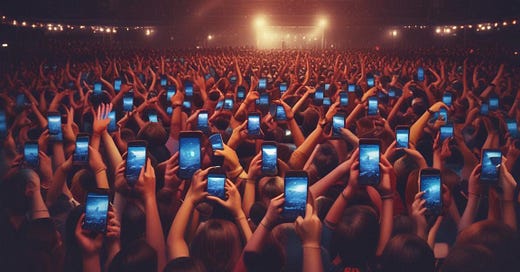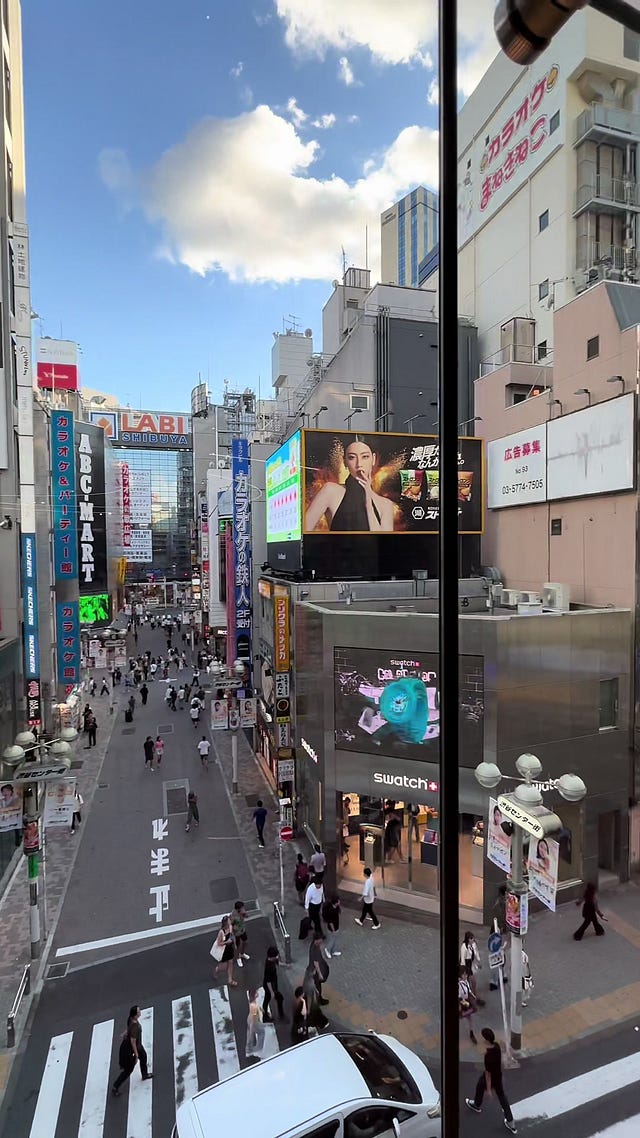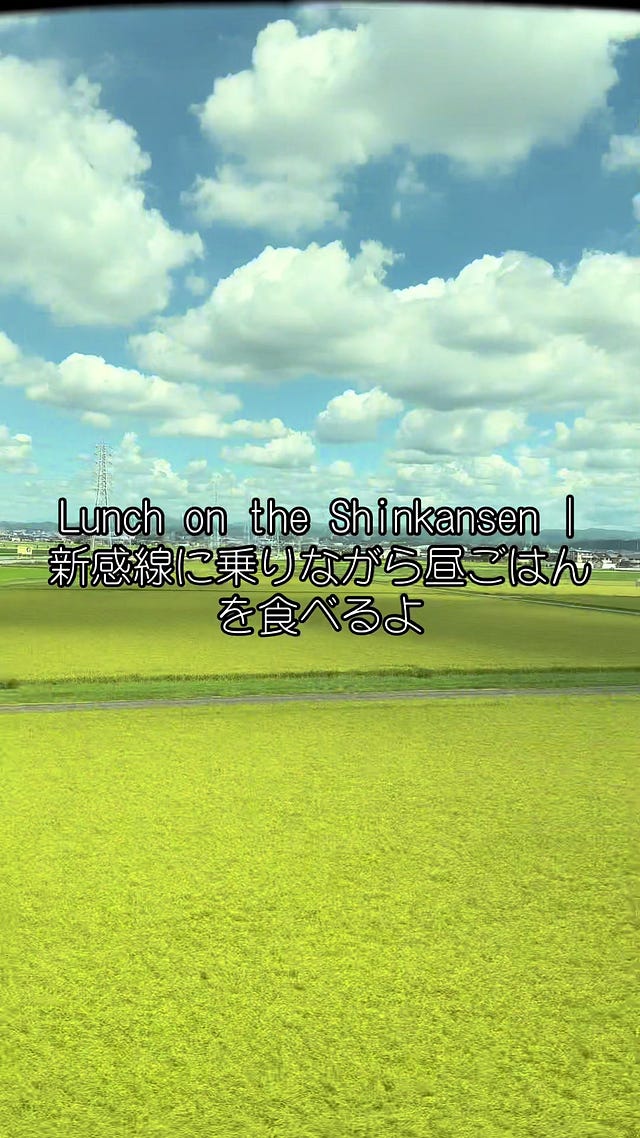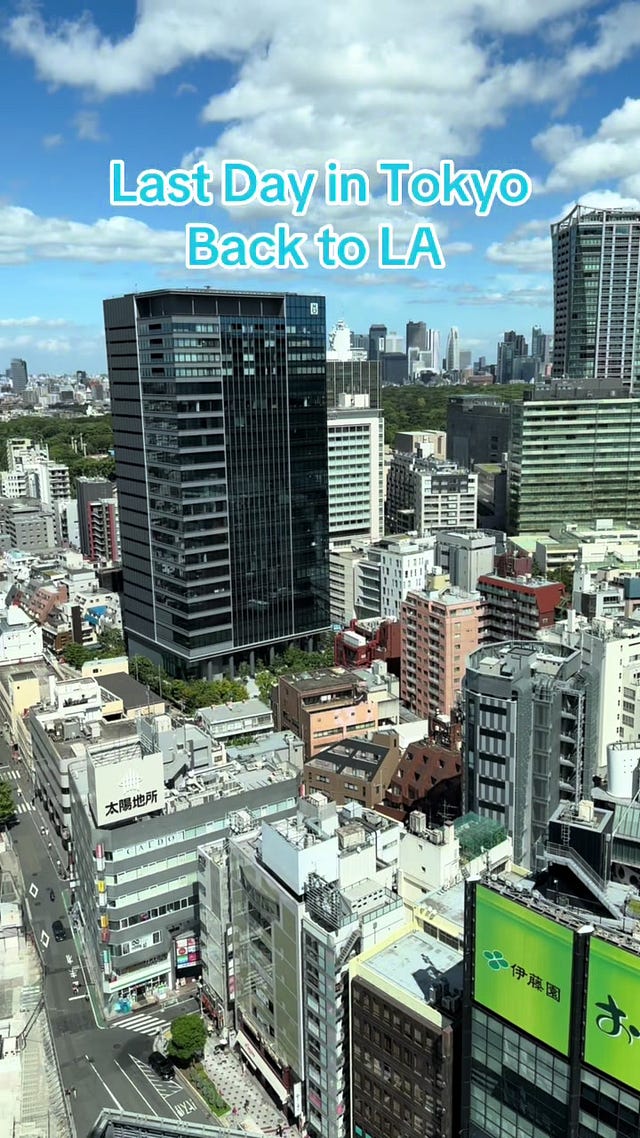Critique Culture Needs to be Critiqued
The relationship between spectatorship, content creation, & critique culture
There’s a particularly harrowing episode of Black Mirror where people give each other reviews on their phones throughout the day, every day, based on how they behave, essentially creating a perpetual human critique society. These reviews aggregate and create a human review average that grants those with the highest scores unique privileges, rights, & prerogatives in the world.
Of course, it would be easy at first to dismiss this episode as a horrifying exaggeration of the world we live in right now because in that world everyone has an opinion of everything and people are constantly judging and evaluating each other and those reviews have social and class consequences that we don’t have in our world. And that last part is correct. But I think we’ve already reached critical mass in the first part without even realizing it and that is incredibly alarming. Said another way, we have already landed on a world where everyone has an opinion of everything (and everyone) and people are constantly judging and evaluating each other, even when they lack information, context, nuance, understanding, empathy, permission, or insight into the things they review and the people they judge.
I’m reminded of my own contributions to critique culture:
-I once left a review on Yelp for a train station on the Red Line in Chicago. I didn’t know until that moment that the Morse El stop already had an entry by a freaked out white yuppie who was scared to walk home to her new-construction condo in the dark. To be honest, I was scared too, but it wasn’t the locals I was afraid of in Rogers Park, it was the outsiders, who were liable to call 911 for the slightest discomfort.
-There was a time when I used to review books I loved on GoodReads. Mostly books I read during my informative years and of course, books my talented friends had published. I did this to counterbalance all the angry readers who gave anonymous two-star reviews to many of the best books ever written not just by my friends, but by my favorite authors of all time. In time I realized that some readers don’t even read the books they reviewed or they only read part of the book (because their reviews asked questions that the book literally answered in the second half of the book) or they simply objected to the idea of the book or they disliked the author or they hated the people that loved that book or they were obnoxious know-it-all English majors or theory-laden grad students who’d learned the power of their own hatred for everything that didn’t come out of their own mouths. In short, I realized that GoodReads was the place where opinionated people (many of them not even book lovers) could rage against authors with half-formed opinions, unmitigated cruelty, & impunity without understanding the unique subgenres of fiction they were attempting to critique.
-I went through a phase where I was adamant about leaving Lyft reviews for my drivers, especially when they were good.
-I still leave positive DoorDash reviews to hype up local, mom and pop restaurants, mostly to give them more love and exposure and increase their average rating if I can. Considering that economists have analyzed the economic impact that a 3-star average has on a restaurant versus a 4-star average, the consequences of good reviews are significant.
-Rate My Professor has been a source of frustration for almost every academic I know at some point in their lives since the best and hardest working students never use it (anymore), making the website a one-way mouthpiece for the most disgruntled, delusional, lazy, & malevolent students you can imagine who would rather blame anyone except themselves for not doing the work, not listening to lecture or instructions, not reading the syllabus, & not contributing to a supportive and inclusive learning environment. While sometimes I wish the internet had a Rate My Student so that professors could aggregate the most problematic students who do nothing but derail class conversation (90% of them white Karens), I still wouldn’t wish that on anyone, not even the biggest asshole student. And the worst students are always the biggest assholes. Everyone knows that.
-I thought I was over Google Reviews until I was stuck with a bunch of sweaty, rude, pushy tourists at the Sensōji in Asakusa at the end of the summer hurrah and then I realized I wanted to warn people in the future to avoid that temple in September if they could help it because it was impossible to take good pictures with so many miserable tourists walking into your frame.
Looking back, some things stand out to me now:
Though I never realized it until recently, my motivation for writing reviews is altruistic: I want to draw attention to the underdog whenever I can whether it’s a local Thai restaurant, a friend’s recently published memoir, a fabulous hole-in-the-wall curry restaurant in Shinjuku, or an Uber driver I adored who told me his life story about moving to Long Beach from El Salvador. I also write reviews to help others avoid urban congestion, long lines, and overpriced tourist traps. Behind everything, my motivation is usually to help people because well, that’s just how I’m wired, but also because I’m interested in curating future experiences for readers since I’m in a unique position to do so.
I really value reviews that list, for example, the stand-out dishes at a Vietnamese restaurant in LA or that warn me of the most overpriced hors d’oeuvres to avoid at a French restaurant in Paris since curation helps me save time and (often) money while giving me an informed perspective about a future experience I couldn’t possible have the knowledge, expertise, or time to investigate myself.
At the same time, it feels like most reviews come from a place of disapproval, not exaltation. They come from ego, not community. Self-vindication, not self-interrogation. Ignorance, not knowledge. Entitlement, not humility.
Humans are much more motivated to write reviews when they hate something or when they want to be the smartest person in the room despite having a very basic understanding of something like fine-dining or literary fiction than when they love something deeply or when they have a deep, complex understanding of something.
We use language now as a weapon to throw stones but we throw them from our rooftops where no one can see us. We do not use language enough to heal, celebrate, investigate, & reimagine reality nearly enough.
Looking back, this is probably why my books tend to come from a vastly different place than most authors because I always write from a place of love, even when my art is a blistering critique of something.
The vast majority of reviews I’ve read on the internet or watched on TikTok whether for books, restaurants, cafés, clothes, airlines, cities, clothing, pets, smart phones, computers, snacks, or cars, are complete shit. I mean, like absolutely shitty and abysmal. I’ve watched just a ton of content creators scarf down pad thai with exaggerated yum expressions, talk about “the texture,” show a couple clips of the food, exclaim how delicious the food was, and then conclude their “review” with a “like for more!” WTF is that? That’s not a critique. It’s barely a review.
Has the bar been lowered so much that now an opinion, any opinion, no matter how badly researched or inarticulate the reviewer is, constitutes a review?
And this is algorithmic mischief at its finest: an influencer with three million followers gets 900,000 likes for a total bullshit review that says nothing except ohmygodyumthisissoooogood while an actual food critic, unless they’re one of the few to write for the New York Times or Time Out or The Infatuation or Town & Country, gets ignored because expertise isn’t valued anymore in this country. It just isn’t.
I’ve read countless book reviews on GoodReads that were so uninformed, so malicious and so clueless, so unrefined and so unhinged, I actually got embarrassed reading them. Like, it was obvious the reviewer dismissed the book after finding one thing they didn’t agree with or appreciate and it was obvious the reviewer didn’t finish the book either but it was also painfully obvious that the reviewer had no idea how hard it was to write a book and thought books should crackle the way a Netflix thriller should crackle. These “reviews” demonstrated a blatant lack of respect for the genre of the critique itself. They also lacked a refined or even informed understanding of the genre of literary fiction: its different rhythms, genre conventions, slower narrative speed, character based structure, obsession with turning a phrase, & its artistic considerations that are unique to the genre.
While it will take an author 4-15 years to publish a book with a press, it only takes a love-sofa-critic 5 minutes to type up an ignorant review that basically amounts to “I didn’t like it” because that love-sofa-critic doesn’t know and doesn’t care about all the time and energy it takes to write, edit, revise, copyedit, & publish a book. If he did, he would automatically be more gracious with his criticism (unless he’s a self-published author who publishes unfinished first-drafts). Likewise, while a sushi chef might have dedicated years and even decades of apprenticeship to learn the craft of making sushi, it only takes twenty seconds for a UCLA college student to say she didn’t like the taste of rice vinegar in her rice using just her thumbs to tank a new Brentwood pop-up without even considering the consequences (saying nothing of the ignorance) of their hot take.
The point is, you have craft on the artistic side which takes a lifetime to cultivate and then you have the obscene absence of craft on the review side which takes no time at all precisely because every person thinks they’re (qualified to be) a critic even when they don’t understand anything about the things they critique or the genre of criticism itself.
Criticism has become a lost art form but when it’s great, it’s almost always written by experts and/or fellow artists who have worked on and cultivated their own craft over a life time whether in the artistic genre that they write in and critique or in the genre of criticism itself. I said what I said.
Criticism has become part of our cultural spectatorship now. When we offer half-baked reviews about things we’re merely dabbling in, we are not creating art, we are debasing it. When we create art, we do not normally write critiques for a living (just now and then). And while great criticism is a phenomenal art form, it’s become rarer and rarer these days, making art-creation and criticism-writing binary in a way that it wasn’t before. Our review culture is possibly the clearest example of this.
The vast majority of the most sadistic critics on Yelp, Google Review, & Good Reads are not successful artists in any meaningful sense of the word (because who has time for that shit?), which is precisely why pseudo-artists and pseudo-critics think both craft and criticism are really easy, obvious, fun, justified, & uncomplicated whereas great criticism (and certainly great art) are none of those things.
Mediocre criticism has become a central part of content creation. If you scroll on YouTube, TikTok, Instagram, or Facebook, it feels like almost every post now is a tiny, insipid, redundant review of something else whether it’s the new donut shop in Eagle Rock or the men on Love is Blind or Elon Musk’s terribly pronounced Robovan or the bodyguards at the Met Gala or the cost of living in Delaware or crocodile belts or mushroom tea or the new Trader Joe’s cookies. Even when a post is not a critique, like for something a content creator is being paid to post about, it still feels like a review even though product endorsement and affiliated marketing intentionally offer the least objective reviews imaginable. But the pretense still holds, which is all that matters to most people while the quality of the content itself suffers.
The ultimate problem here is that while the cultural imagination continues to ask a lot from artists, mostly so that it can rip off their art, it has given up asking anything of critics because the art form is too demanding, so now, having any opinion is treated as basically the same thing as having an informed opinion or an original opinion. This leaves us with a room of opinionated people all saying the same shit and all trying to say it first and all drowning out the unique voices in every conversation.
Recent News & Content
 Tiktok failed to load.
Tiktok failed to load.Enable 3rd party cookies or use another browser
 Tiktok failed to load.
Tiktok failed to load.Enable 3rd party cookies or use another browser
 Tiktok failed to load.
Tiktok failed to load.Enable 3rd party cookies or use another browser
 Tiktok failed to load.
Tiktok failed to load.Enable 3rd party cookies or use another browser








